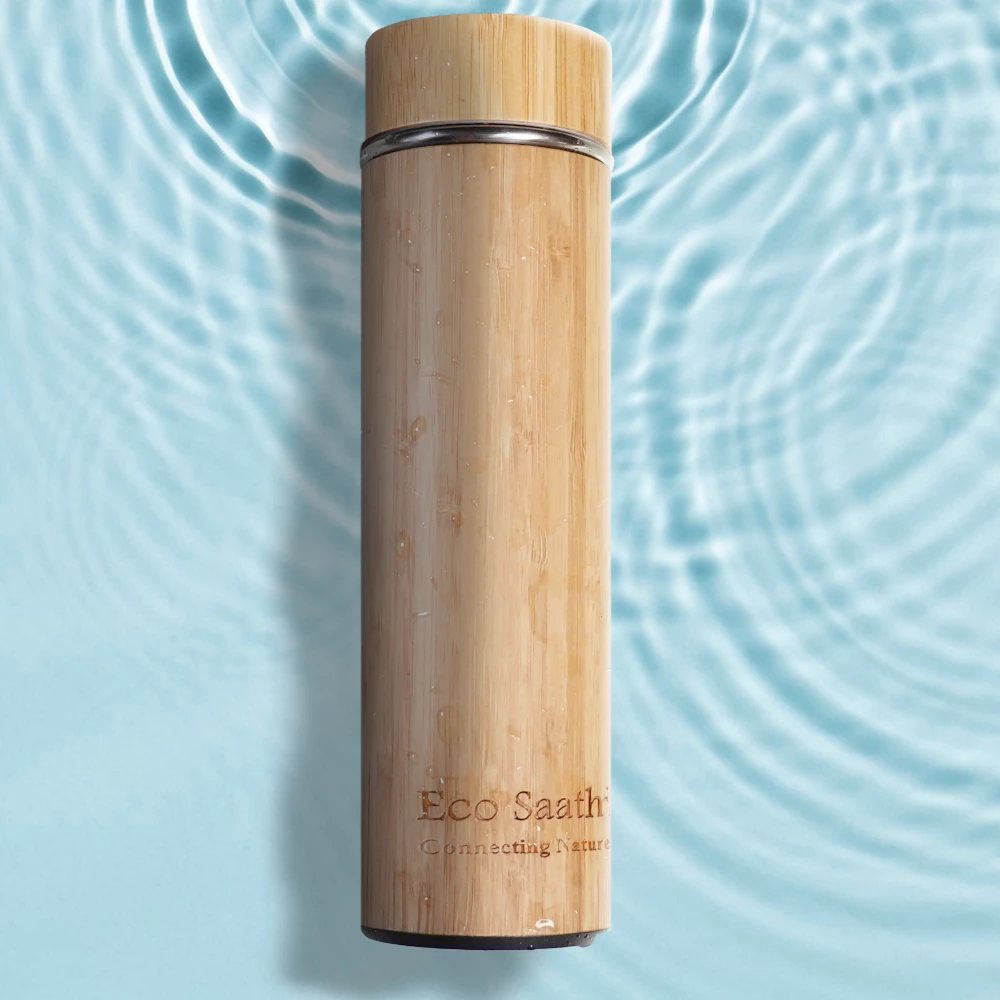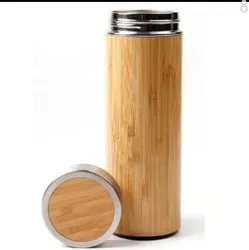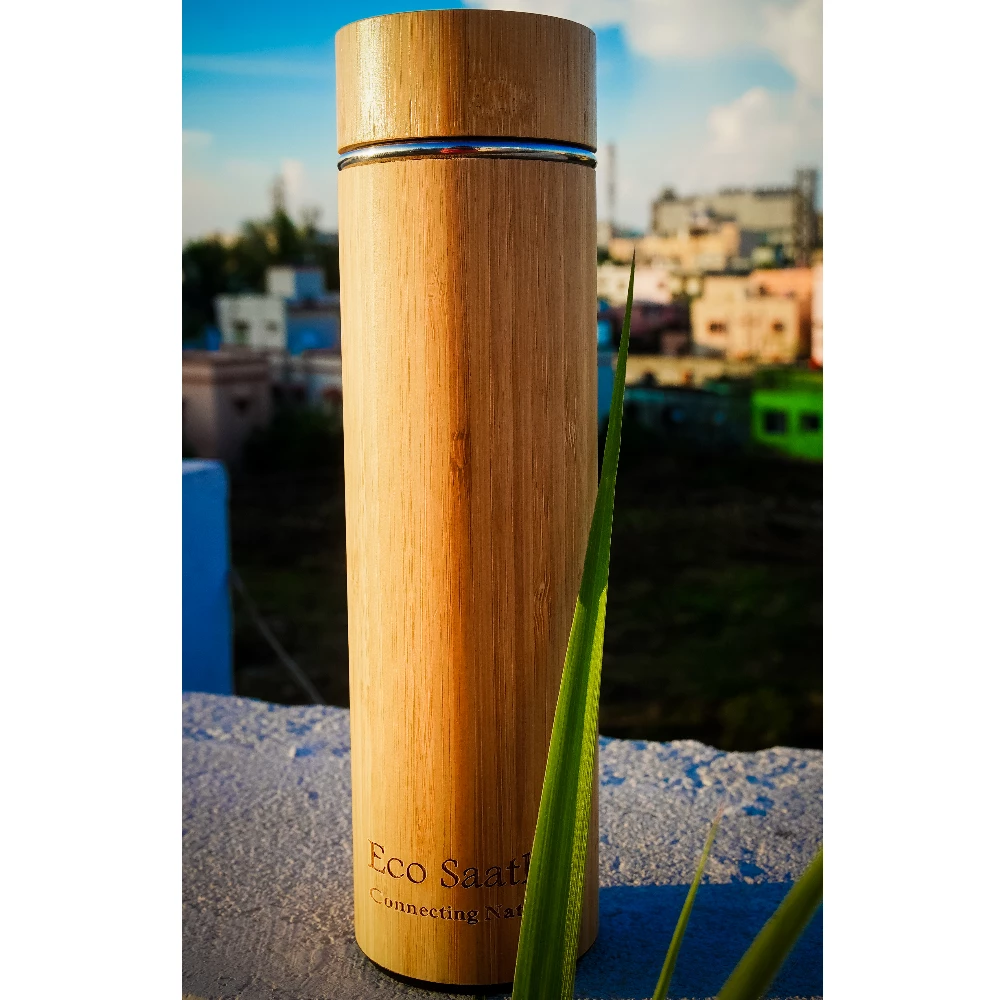Bamboo Water Bottle – 500 ML
₹969.0
– Made up of bamboo and insides of stainless steel
– Bamboo is our sustainable material choice since it matures quickly and may be harvested in three to four years
– Bamboo water bottles are spill-proof and leak proof and have numerous health advantages
– Also acts as a thermoflask and keeps liquid hot or cool for upto 5 hours
– These are perfect to carry to offices, schools, and colleges
– These leakproof, natural, and healthy storage spaces for your drinking water
– These eco-friendly products, if used by all, can reduce the use of plastic by tremendous amounts and can bring about real improvement toward sustainability.
- Description
- Additional information
- Reviews (0)
- Q & A
- Sustainability Remark
- More Offers
- Store Policies
- Inquiries
| Material | Bamboo |
|---|
You must be logged in to post a review.
Q & A
Bamboo is often regarded as an eco-friendly material due to its sustainability and various environmental benefits. Here are some key points about the sustainability of bamboo products:
Rapid growth: Bamboo is one of the fastest-growing plants on Earth, with some species growing up to 91 centimeters (36 inches) in a single day. This rapid growth makes bamboo a highly renewable resource, as it can be harvested and regrown within a few years.
Low environmental impact: Bamboo cultivation requires minimal use of pesticides, fertilizers, or herbicides. It naturally repels pests and diseases, reducing the need for chemical interventions. Additionally, bamboo grows densely, which helps prevent soil erosion and can contribute to land restoration.
Carbon sequestration: Bamboo has excellent carbon sequestration properties. As it grows, bamboo absorbs significant amounts of carbon dioxide from the atmosphere and releases oxygen. Studies suggest that bamboo can sequester up to four times more carbon than hardwood trees.
Water efficiency: Bamboo requires less water than many other crops. It can thrive on rainfall alone, reducing the need for irrigation. This aspect makes bamboo more sustainable than water-intensive crops like cotton or traditional hardwood trees.
Versatility: Bamboo is a versatile material that can be used in various applications, including construction, furniture, textiles, paper, and more. Its versatility allows for a wide range of eco-friendly products that can replace less sustainable alternatives.
Regeneration and reforestation: When bamboo is harvested, the root system remains intact, allowing for rapid regeneration and new shoots to grow. This process eliminates the need for replanting, further contributing to its sustainability. Additionally, bamboo plantations can aid in reforestation efforts and contribute to biodiversity.
However, it's essential to note that not all bamboo products are equally sustainable. Some factors to consider include the sourcing of the bamboo (preferably from certified sustainable plantations), the manufacturing processes used, and the end-of-life disposal options. It's crucial to choose bamboo products from reputable brands that prioritize environmental and social responsibility.
Overall, bamboo has significant sustainability advantages compared to many other materials, but it's still important to make informed choices and consider the entire life cycle of the products we use.
General Inquiries
There are no inquiries yet.



















Reviews
There are no reviews yet.